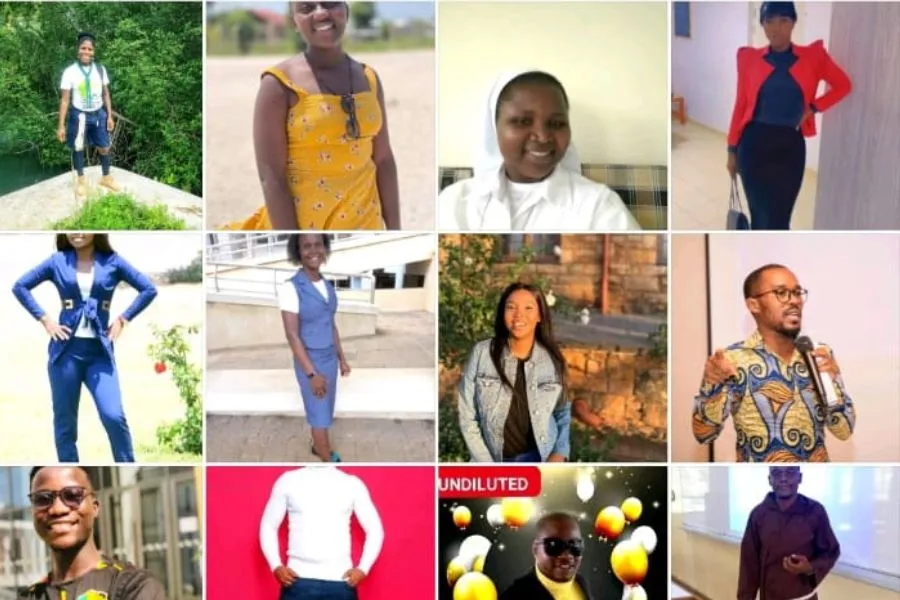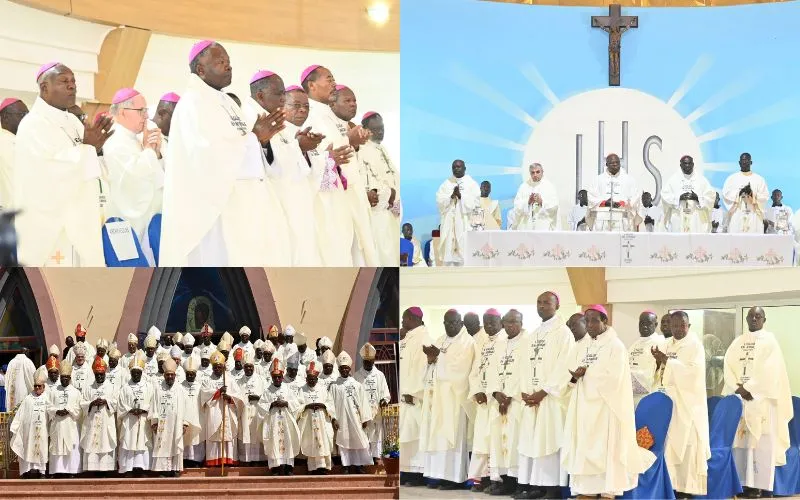Most of those in the digital peripheries stopped going to church but can still access content online to fill their spiritual needs, the Kenyan member of the Clergy of the Archdiocese of Mombasa tells ACI Africa.
Fr. Pascal says that ASDYFI is the fruit of the Synodal conversation that young people in Africa had with Pope Francis in November last year.
He says that the initiative brings on board young people who may have missed out on the conversations on the Synod on Synodality.
“Youth may not have participated fully in the structured channels of the local church because most of them have their digital space in the social media where they find communities interacting with them. Some don't go to the church frequently but can manage to have people on the different social media platforms to nourish them spiritually,” the Kenyan Catholic Priest says in the Monday, June 26 interview with ACI Africa.
He says that the young people’s participation in the synod digitally in November last year was a proper Synodality of journeying with them and accompanying them pastorally.
(Story continues below)
Youths from nine African countries participated in the online encounter with Pope Francis on 1 November 2022, after which the idea to spread the Holy Father’s message to all African countries was born and spearheaded by the Pan African Catholic Theology and Pastoral Network (PACTPAN) unit called Church of Now, which has subunits called Building Bridges Initiative (BBI) and ASDYFI.
“The word influencer was used by Pope Francis who referred to Mary the Mother of Jesus as the influencer of God. Saint Don Bosco was also an influencer of his time. Youths who are the church of now can also influence and be digital missionaries in their social media spaces,” Fr. Pascal says.
According to the official of PACTPAN, the presence of the church which listens to the youth in the digital platforms becomes like the good neighbor (Good Samaritan) in the gospel who accompanies the wounded person.
“Those in the social media have their wounds which cause them not to frequent the church, or prefer that space. The presence of the church to journey with them is to help them strengthen their hopes, remove their fears of communicating and being listened to from the digital peripheries,” he says.
The Kenyan Catholic Priest says that the idea of ASDYFI is to bridge the gap between the Clergy, women and men Religious, and youth laity so that they can be part of the church journey and full participants, realizing that they are being listened to.
ASDYFI’s WhatsApp has 199 members drawn from all African countries except Somalia, Sudan, and Madagascar. Officials of ASDYFI are working to ensure that young Catholics in these countries are represented in the group.
Some of the activities in the group include an online Small Christian Community (SCC) held monthly to reflect on the day’s Bible readings.
Members of the group also participate in thematic discussions on key issues affecting young people in Africa, such as unemployment and migration.
The members engage in online meetings for planning of their activities and generate content for spiritual formation which is approved by Priests and Nuns in the group and shared on various social media platforms. The social media handles are: TikTok (@digitalfaithinfluencers), Facebook (African Digital Youth Faith Influencers), and Instagram ASDYFI (African Digital Synod Youth Faith Influencers).
They also take part in impromptu quiz sessions and challenges regarding church documents and matters of faith.
The group is also preparing some of its members to participate in this year’s WYD in Lisbon, Portugal. They are currently recording videos with a common song for participation in the August event.
Sr. Josephine Bakhita, teaching at Kenyan-based Uzima University and also assisting at PACTPAN’s Church of Now told ACI Africa in a Monday, June 26 interview that members of ASDYFI will start training as digital faith influencers on September 1.
“We have already developed a training manual to churn out certified digital faith influencers. They will be feted in Rome at the end of the training,” Sr. Josephine said, and added, “We want our influencers to call their peers who are very difficult to get in the physical Church.”
The main challenge that the group faces is language barrier as it caters for the needs of English, French, Portuguese and Swahili speakers from across the African continent, Sr. Josephine said, and added, “We try to translate main messages using members or by using an app.”
Agnes Aineah is a Kenyan journalist with a background in digital and newspaper reporting. She holds a Master of Arts in Digital Journalism from the Aga Khan University, Graduate School of Media and Communications and a Bachelor's Degree in Linguistics, Media and Communications from Kenya's Moi University. Agnes currently serves as a journalist for ACI Africa.








